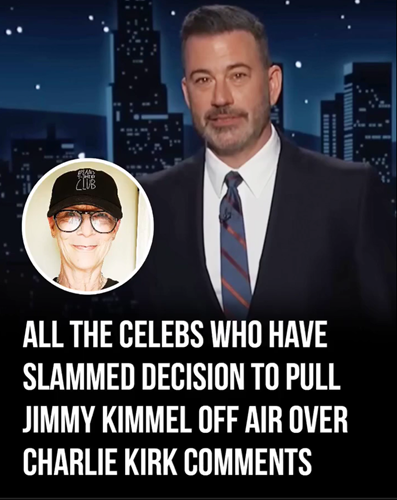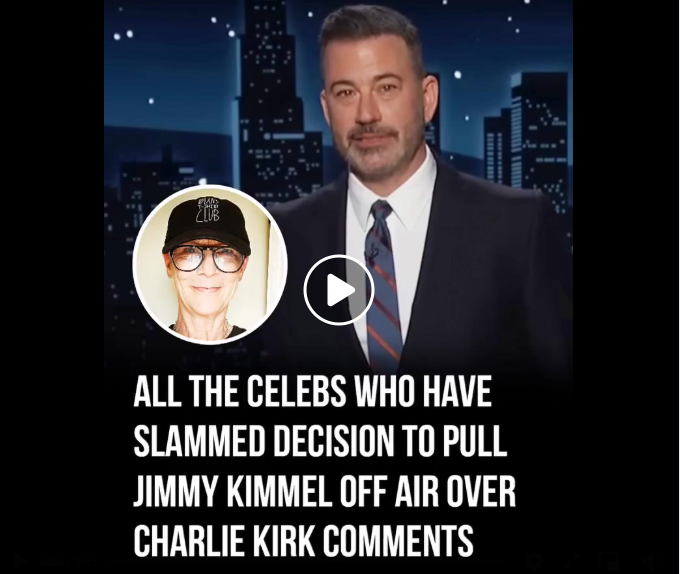
The unexpected suspension of Jimmy Kimmel Live! has stirred intense conversation across the entertainment industry. When ABC announced that the late-night talk show would be taken off the air “for the foreseeable future,” reactions from actors, comedians, and media personalities poured in—many expressing concern, confusion, and disappointment.
Comedian Wanda Sykes, who had been scheduled to appear on the show the very night it was pulled, voiced her frustration on social media. She emphasized how cancellations like this can silence important conversations and disrupt opportunities for creative expression. “Late-night has always been a space where comedians can speak truth to power,” Sykes wrote. “We can’t afford to lose that.”
Actor and director Ben Stiller echoed similar feelings, simply stating, “This isn’t right,” in a short but pointed message that was widely shared. His sentiment was joined by Jamie Lee Curtis, who offered a more nuanced take. While she acknowledged that people in the entertainment industry won’t always see eye to eye, she stressed the value of open dialogue. “Disagreement is part of growth. Shutting people down isn’t the answer,” she posted.
Several other celebrities and media figures joined the chorus of concern. Comedian Mike Birbiglia, who has occasionally guest-hosted Jimmy Kimmel Live!, urged fans and fellow entertainers to stand together in support of creative freedom. “Comedy has always been about pushing boundaries,” he said in an Instagram story. “We should be defending that space, not shrinking it.”
Meanwhile, former news anchor Megyn Kelly discussed the situation at length on her podcast, framing the show’s suspension as part of a growing trend in media where public pressure affects programming decisions. She questioned whether the move reflected broader industry hesitations about airing content that might be considered controversial or polarizing.
Model and actress Christie Brinkley also added her voice to the discussion. In a post on X (formerly Twitter), she reminded her followers of the powerful role humor plays in society, especially during difficult times. “Laughter helps us cope, connect, and heal,” she wrote. “We need our comedians more than ever.”
The wide-ranging response from public figures shows that this is not just about one host or one show—it’s about the shifting landscape of television and entertainment more broadly. For many, the removal of Kimmel’s show, without a clear explanation, raises bigger questions about censorship, cancel culture, and the fine line networks must walk between public opinion and artistic freedom.
While ABC has not released detailed reasoning behind the decision, speculation continues to swirl. Some believe the move was prompted by recent jokes or segments that sparked backlash, while others suggest it may be due to internal changes or mounting pressure from advertisers or executives.
Whatever the case, Jimmy Kimmel’s absence has become symbolic of a larger cultural tension. As networks navigate an increasingly sensitive and polarized audience, the future of free expression in entertainment remains uncertain. For now, one thing is clear: many in Hollywood aren’t staying silent.
